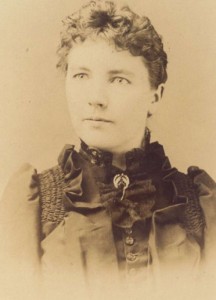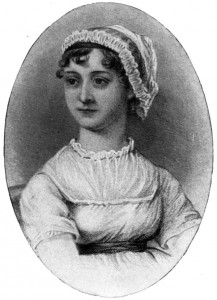Why Sequels Aren’t Equals
If you’re a book lover, like me, you have a favorite author (or several). And at some point, you will have read all the works by said author. What happens then? Do you sigh sadly, make a cup of tea, and begin writing yourself? Perhaps you check out a new author from a reading list, or ask a friend for a recommendation. You could even read a book about the author (I have two such books on my reading list, biographies of beloved authors Elizabeth Goudge and Bess Streeter Aldrich) or make a pilgrimage to places they lived, wrote, or wrote about.
Or, you can read a sequel by another author.

Unfortunately, there seems to be a great deal of variation in the quality of such “sequels.” Not to step on the toes of those who enjoy them, but if you love good writing, I think you’ll notice a jarring contrast between, for example, Laura Ingalls Wilder’s books and the “Little House on Rocky Ridge” series by Roger Lea McBride. Now there are even more additions to the stories, written by Melissa Wiley and Maria Wilkes. While Laura’s books are well-written and enjoyable for adults as well as children, the modern titles would be unlikely to hold the interest of anyone over the age of twelve. Admittedly, that is the market they were written for, but it saddens me to see the decline in writing skill throughout.
Not only are many modern attempts poorly written, they are often full of glaring historical inaccuracies. The obvious factual errors (such as someone having a telephone before they were invented) are bad enough, but what really annoys me is how often the characters think and act like they were transplanted from our current time. Were there independent-minded girls in the 1800’s? I’m sure there were. Did they really talk back to adult men at the age of 12? I doubt it.

That’s why I was excited to discover a “new” Jane Austen – an unfinished fragment called “The Watsons” which has been finished by at least three different people, including Jane’s niece. The most recent attempt was in 1996, by a woman named Joan Aiken. Despite the promising reviews (“Others may try, but nobody comes close to Aiken in writing sequels to Austen” and “seamlessly continuing where Jane Austen left off”), I was once again very disappointed.
Not only is the writing style completely unlike Austen and the story line far from plausible, there are so many historical errors that it is quite maddening. Would a young lady have driven her sister (in a carriage, of course) to a ball? Would a young man confess, “She’s the one for me!” about the lady he admired, or say “I reckon?” I could go on for a long time, but instead I’ll recommend a far better alternative: The Watsons, by Jane Austen and John Coates. Truly outstanding. Mr. Coates not only writes well, he treats Austen’s work with great respect and finishes her book in a manner that does not leave one wondering what century is being portrayed. Find it if you can – it is a delightful read.
All of this begs the question: why are there so many poorly-written sequels to wonderful old books?
I think in some cases, the author of the “new” books simply want to continue the story for those who loved the books as much as they did. Sometimes they want to emphasize the “Christian” aspects of the books, aspects that were more subtle in the originals. (Eric Wiggin’s adaptation of Rebecca of Sunnybrook Farm is a good, although annoying, example of this.)
But it often seems that the motivation is money. I’m thinking particularly of the recent outpouring of “Jane Austen sequels” in the wake of all the movies – books which for the most part, unfortunately, do not belong on a Christian’s shelf. And I suppose if money is the motivator, it makes sense that the authors could be careless. Put “Mr. Darcy” on the front and it will sell. Most people either don’t know or don’t care enough to be bothered by inconsistencies or wrong information.
No, sequels are not equals. And while I’m sure I’ll try a few more that look promising, for the most part I’ll stick to the originals.

Oh, that sad, sad feeling when you finish a good (series) of books and realise the good times are over and that you will have to go back to ordinary life… I do think that is the motivation for many of the sequel authors; continuing to live in the story.
I haven’t read many sequels of that sort, but it seems to be a fact that modern authors often (not always) are in a different class than those of old when it comes to writing well. Historical errors in any book is horrific to read, especially in cases like what you mention (back-talking twelve year old).
You did a good job on this post 😉
(I know it’s old, though new to me)
There’s a Pride and Prejudice ‘sequel’ (actually P&P told from Mr. Darcy’s view), titled Darcy’s Story, written by Janet Alymer. I enjoyed the book, and I thing that the author imitated Jane Austen’s style fairly well.
I have to say though, I love the “Caroline” years. Especially the last two, they are so good. They may not have the exact feel that Laura Ingalls did, but they come very close.
I do not like the “Rose Wilder” Books. At all!
In general sequels are not good, but sometimes there are exceptions.
In Him, Jessica
Like Vanessa, I like the Charles Tritten sequels to the “Heidi” books, but otherwise I avoid “sequels” to novels written by anyone other than the original author. I’ve been given a number of Jane Austen sequels by people who know I enjoy her novels, but none of the sequels have been as good as the original novels and most of them have been inappropriate in some way. It saddens me because the Jane Austen novels are beloved by lots of people partly, I think, because they’re clean and lovely – and now sequels are published which are far from clean and lovely. I DO like it, however, when an author writes a whole series of books – it can be very satisfying (and fun!) to follow the characters through the series!
Great piece! I admit that I have read none of the book sequels that you mentioned, but I have the same feelings about film sequels and re-makes. Whenever a remake of a great original film is made (like Psycho) I find myself crying out, “why, why, why would they re-make it when the original was so great?” I think that for some the motivation is money, but for many, the motivation is the opportunity to participate in one of their favorite stories. For example: if someone decided today to remake one of my favorite movies (say, The Sound of Music), there would be a part of me that would jump at the chance to take part. So I understand that motivation, even if it is not advisable to follow it to its conclusion.
I hear you, Jeannie!
And I have read two of those Roger Lea Mcbride books and was very disappointed.
Honestly, I find fictional books that were written before I was born 😉 to be far better all around.
The same goes for some movies too; the sequels are often rather disappointing and not worthy of watching even once.
Sorry be a bit nitpicky, but I am a tiresome pedant at times. Reckon is used far more widely in Great Britain. While, saying reckon is a bit declasse in American usage, by many accounts it would have been used easily in Regency England.
Good catch. =) I could have listed about 40 other examples, but perhaps this one was misplaced on my part.
Great post, and clever title! 🙂 I’m sitting here trying to come up with some exceptions to the rule, but I can’t. Sequels written by the same author are sometimes okay, but seem to be worse if a certain amount of time has gone by. Sequels written by a different author are, as you said, not as good.
I think a lot of it has to do with being attached to the characters. This is partly why it’s so weird when a TV show (or film series) switches actors. We read (or watch) the sequels because we expect to meet our friends, these “people” we believe we have a relationship with. And it’s very disappointing when they’ve changed.
I agree that money is a motivation, in most cases. It becomes a franchise.
How funny. I was just griping to my dad about this after reading Jill Paton Walsh’s book, “The Attenbury Emeralds,” which is based on the writings of Dorothy L. Sayers. Walsh’s writing style is nowhere near DLS’s (which is more than half the pleasure of reading her books in the first place) and as you’ve pointed out, the “modern mindset” seems to slip into characters all too easily. So why did I read it? I was sick abed, and to paraphrase George Mallory, “It was there.” 😉
I have not read any of the Jane Austen sequels, although I am glad to have a discerning recommendation of John Coates’ continuation of “The Watsons.” I have enjoyed some of Joan Aiken’s children’s books, so I might have been induced to pick up her version on the strength of that.
I don’t think I’ve read too many other sequels in that vein, except a few Agatha Christies that were based on her plays and turned into novels, which did not impress me at all. On the whole I’m with you — sequels written by other authors just don’t measure up!
The only good sequels I’ve read are the two sequels to “Heidi” by Johanna Spyri. (Heidi Grows Up and Heidi’s Children.) They aren’t quite as good as the original book, but are still a good continuation of the story.
I was actually going to mention those as being worthy titles, but ran out of room. =) I think one reason they are so much better is because they were written by the man who translated the original into English. You have to really “get” what the author is saying in order to translate, so I feel like Charles Tritten had a better handle on writing the sequels than a lot of others. Thanks for the comment!